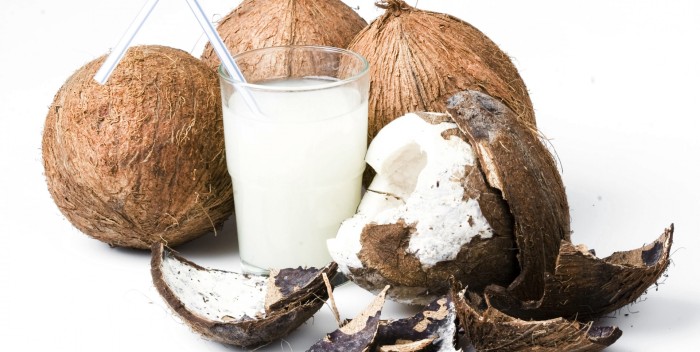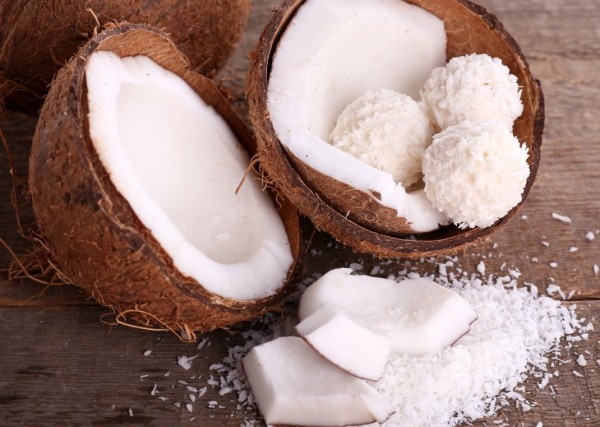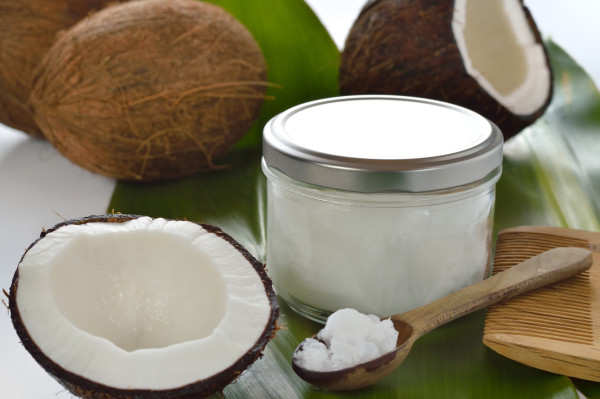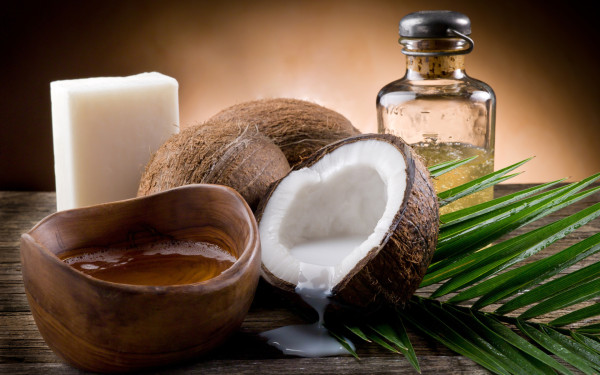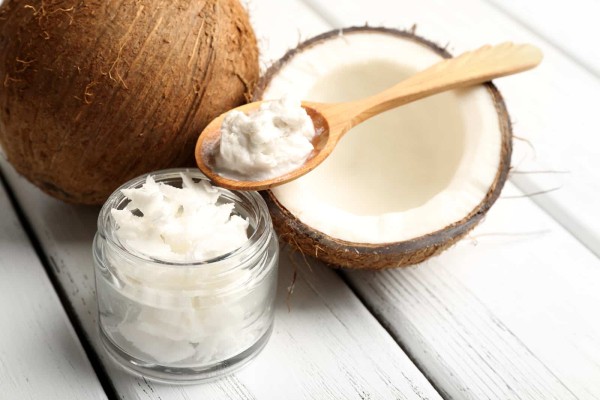The benefits and harms of coconut and its milk
Coconut is home to tropical countries and islands. Its name comes from the Portuguese word for "monkey". The fact is that outwardly, the fruit of a coconut tree is similar to a monkey's face. Many people consider coconuts to be nuts, but in fact, these fruits belong to drupes.
Content
The benefits of coconut
The valuable properties of coconut have long been used in the cosmetic industry. The oil of this fruit is very beneficial for hair health. It nourishes them, makes them smooth and elastic, strengthens the structure and makes them silky. Coconut oil also has a beneficial effect on the skin. Under the influence of coconut oil, the skin becomes smooth, wrinkles are smoothed, and wounds heal faster.
The ingredients in coconut fruit are antibacterial and are beneficial for the thyroid gland. They can be used to improve digestion and boost immune defenses. Eating coconut pulp helps reduce the harmful effects of antibiotics on the human body.
Coconut is high in content vitamins group B, there is vitamin C, there is vitamin E, as well as macro- and microelements. Lauric acid, present in coconut fruits, is useful for normalizing blood cholesterol levels. It is useful for the prevention of atherosclerosis and other diseases of the heart and blood vessels.
Fresh coconut pulp, which is under a hard shell, finds its use in cooking. And in dried form, it is used to make coconut oils, which is used not only for cooking, but also for the needs of cosmetology, as well as in the perfumery and pharmaceutical industries.
From the bark of the coconut, which forms the hard shell of the fruit, ropes, ropes, brushes, carpets, as well as various building materials are made. Souvenirs, toys and musical instruments are made from the shell itself.
Harm of coconut
It is believed that the high calorie content of coconut and too much fat in it pose a danger to the health of blood vessels and the heart. But according to recent studies, the fats that make up coconut do not have a detrimental effect and do not increase cholesterol levels. However, people who have problems with extra pounds should not get too carried away with coconuts.
Refraining from excessive consumption of coconut is also worth those people who have digestive problems. The fact is that coconut has laxative properties and can cause diarrhea. The last contraindication to using coconut is the tendency to allergic reactions. It manifests itself in very rare cases.
Application of coconut
In countries where coconut grows, its fruits are used as a medicine against cholera, poisoning and eating disorders. The pulp of coconut is used to make medicines against otitis media, and from coconut milk they make drugs for the treatment of sexually transmitted diseases.
Even coconut shells are used for medical purposes. Ash from it helps with the healing of wounds, cuts and sores on the skin. Coconut juice in some countries is even used for intravenous injection. They are used to restore strength to a person and prevent dehydration.
Very often coconut is used in cooking and cosmetology. Delicious confectionery is prepared from the pulp of coconut. In some countries, it is used to prepare sauces for meat or fish dishes. Coconut oil is often used in massage to enhance the effectiveness of the procedure. Coconut oil has a good effect on hair, so it is used to make shampoos, masks and other hair care products. Coconut oil has a particularly positive effect on oily and weakened hair.
Benefits of coconut milk
A product called coconut milk obtained from the processing of coconut pulp. It is crushed and mixed with coconut juice. The result is a thick white liquid. Coconut milk is commercially available in the following options:
- IN dry after evaporation of the liquid and subsequent grinding of the dried mass into powder.
- Canned.
This product is often recommended as a substitute for animal milk, so it can be consumed by vegetarian and fasting people. In any form, coconut milk contains many vitamins, polyunsaturated fats and trace elements. This product does not cause an increase in cholesterol, it can be consumed by people with lactose intolerance and enzyme deficiency.
- Coconut milk is useful for enhancing the body's immune properties.
- It has a detrimental effect on viruses and microbes.
- This product has a beneficial effect on the activity of the gastrointestinal tract, is useful for the improvement of the intestines and stomach.
- Coconut milk is useful for strengthening bones and teeth.
- It is useful for revitalizing the brain and improving the functioning of the central nervous system.
- Coconut milk is used to increase hemoglobin.
- It is useful for normalizing hormonal levels and for lowering the concentration of cholesterol and blood sugar.
- This healthy drink is often recommended to drink after completing chemotherapy sessions, antibiotics and other drugs that deplete the body. It restores the microflora in the intestines and restores strength to a person.
Harm of coconut milk
Despite all its usefulness, in some cases, coconut milk can be harmful to the human body. For example, in rare exceptional cases, it can cause allergies.
Drinking coconut milk too often leads to weight gain. This is especially true for a product made from fresh fruit pulp. If you bought coconut milk in concentrated form, then you probably saw thick coconut cream on top - a high-calorie and fatty product. Therefore, if you are watching your weight, then it is better to drink coconut milk in small quantities and in a diluted form.
Too much coconut milk can cause signs of intoxication - nausea, dizziness, diarrhea. In exceptional cases, a person may have an increase in blood pressure, an irregular heart rhythm and a deterioration in the blood supply to organs. Otherwise, the use of coconut milk is not harmful, provided it is not overused.
